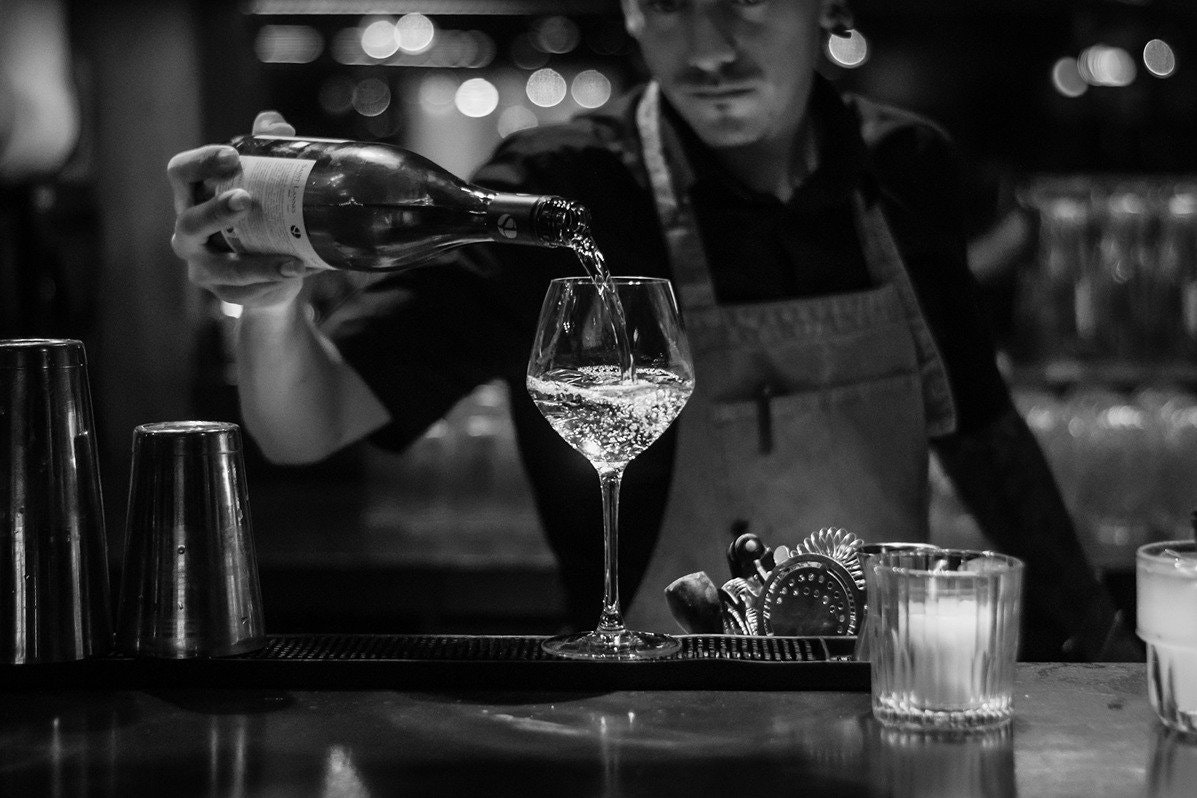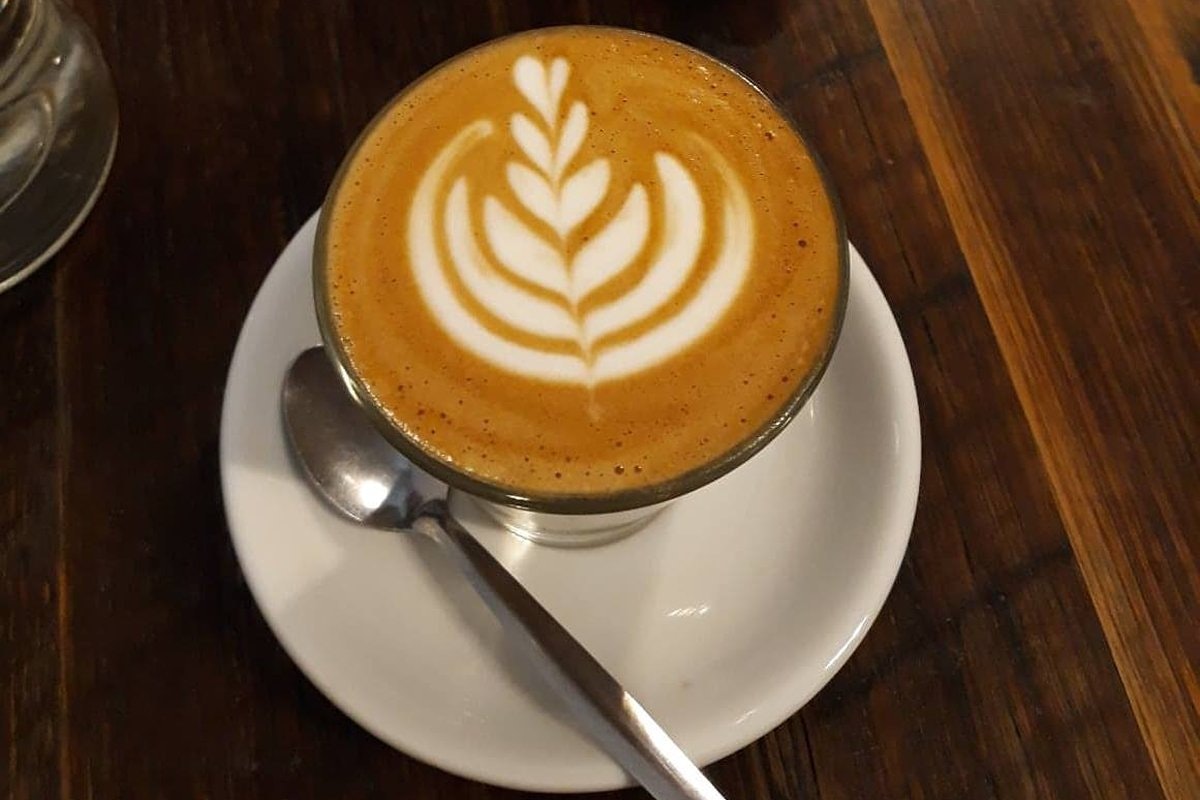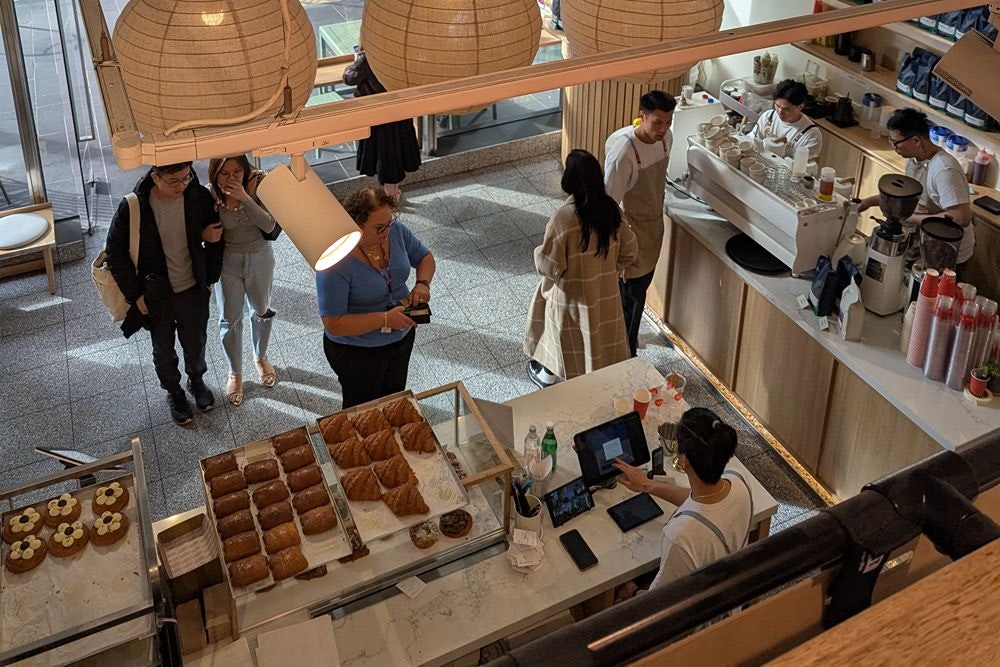Everything you need to know about working in the hospitality industry in Australia
Interested in working in hospitality in Australia but don't know where to start? Read on for your complete guide!

By:
LINA AVILA HENAO
Last Updated:
Jun 13, 2025
Tags:
#work
In this article
Maybe you’ve heard your new classmates talking about hospitality and you’re still not quite sure what does it mean exactly, well do not worry, in this post you will find all the information you need to know.
In spanish the equivalent would be 'hosteleria' however in Australia it is a wider concept, include more fields and works in a much more formal standard.
In this article you willl find a detailed explanation about the hospitality concept, how to work in this industry, what to expect and what are the differences between working in event hospitality and working in restaurant hospitality.
Lets get started!
What exactly is hospitality?
Hospitality is the art of entertaining people in an event or venue, creating a pleasant atmosphere for them guests and offering an enjoyable experience.
In everyday life people most often refer to hospitality as working in cafes, restaurants, hotels, events (basically any service that provides drinks, food or accommodation).
In Australia hospitality is an industry that is taken very seriously - for some people it becomes their career, and can be very well respected.
It also employs a lot of people in the different cities and is definitely an excellent option to explore as a first job.
In this article, we will cover jobs in the Food and Beverage sector (F&B). This is generally divided into two categories (working at events or working as an employee for a specific venue).
What types of jobs can I find in hospitality?
There are many roles within the hospitality industry, but for the sake of clarity the industry is divided into Front of House (FOH) and Back of House (BOH).
FOH: includes all those jobs where staff are in direct contact with customers. The focus is on customer service and satisfaction.
Waiter/Waitress: The person who is taking the orders from the customers.
Runner: The person who takes the plates of prepared food to the tables, and clears the empty plates. This is different from the waiter, because the waiter is the person who takes the order. In some places, the waiter does both.
Host/Hostess: The person who receives the guests when they enter the venue, and seats them at their table.
Bartender: The person who serves the drinks from the bar.
Barista: Someone that specialises in making coffee.
BOH: Here the staff who are behind the scenes and do not have direct contact with the customers. They focus more on the core operations such as food preparation.
Kitchen Hand: A kitchen assistant, that does everything from basic food preparation to cleaning and dishwashing.
Dishwasher: Similar to kitchen assistant, but normally spends the whole shift washing pans (for the kitchen) or plates (from the FOH).
Cook: Someone that prepares and cooks the food.
Chef: A more senior cook - the kitchen has many different levels of cook/chef, but the chef is normally the one in charge of the kitchen that will plate the food and run the service.
There are higher level positions such as manager or supervisor but you will need experience, good English and normally also the right to work full time in Australia.
What is the best thing about working in the hospitality industry?
You will have full interaction with people who speak English, so it will be an opportunity to practice. Although if you are in BOH this may not be the case, as often the whole staff is from overseas!
The work is flexible, you can decide whether to take a shift or not.
It is possible to have fun while working. For example, you can sometimes catch parts of the event (music concert, a footy game or it can be anything).
Teams are usually made up of very fun people.
In event hospitality (unlike other industries) you will probably work between 5 and 7 hours, which means you need a few shifts per week to complete your 24 hours.
You will often get to sample food from the event during your break.
It’s not monotonous! One shift you might be at the bar and another shift you might be waiting tables.
What makes it not so cool to work in hospitality?
You have to be on your feet a lot.
Events are on weekends or late at night. This makes it difficult to socialise.
You can’t eat until it’s time for your break.
Sometimes you have to deal with people who are drunk.
You need to leave home well in advance to be at your destination on time.
During some seasons work is scarce due to lack of events.
How much could I earn?
Base wages vary between 25 and 35 AUD per hour. During weekends and public holidays the hourly rates can be higher due to penalty rates. This means that you will receive an increase on the normal rate for doing the job outside the regular conditions.
It also depends if you were hired as a casual or part time worker. The rate for casual workers is higher because they are not guarantying you with a fixed number of hours, they just call you when they need you (it can turn into a significant number of hours per week, but it’s a risk as they don't have any commitment with hours). You also don't get sick pay or holiday paid. If you are hired as part time then the rate is a bit lower, but you work a fixed number of hours per week and also qualify for sick pay and holidays.
What accreditations do you need?
It depends on the role, but generally:
RSA - Responsible Service of Alcohol: A course to learn how to serve alcohol responsibly in Australia. You will be asked to do this if your role involves serving alcohol or working in the bar - its almost a must have for working in hospitality.
RSG - Responsible Service of Gaming/Gambling: You will need this if you will be working in hospitality within a casino or place that has slot machines.
WWC - Working With Children Card: An accreditation that certifies that you have no criminal record or misbehaviour and that you can work in environments where minors are present. For example, if you are working at an event in a school or nursery.
Food safety: A certificate that is required if you will be working directly handling food. This is another one that is very important to have if you want to work in this industry.
Hospitality for events
Most large hospitality companies in Australia specialise in events catering for corporate clients, sports clubs, weddings, festivals, schools and Christmas parties, among others.
You’d be surprised how many people and businesses hire hospitality companies to organise events.
What do hospitality companies/agencies offer?
In some cases they offer the service of organising the entire event from scratch (they do everything from setting up the tables, stage, music, microphones to food and drinks).
In other cases they are contracted only to provide food, drinks (alcoholic and non-alcoholic) and canapés (snacks on a tray).
In either scenario agencies need to hire experienced staff to work at these events.
What are the big events in Australia?
January: Australian open (tennis).
March: MotoGP, Formula 1.
February to September: Footy (AFL) and Rugby (NRL).
November: Spring Racing Carnival - including the Melbourne Cup.
December: Christmas festivities.
All year round there are concerts, weddings, private company events and other sporting events such as Cricket.
There are seasons when everything goes quiet, but don’t worry, they are not long.
How do you get a job at these events?
Target the big hospitality companies that have openings at certain times of the year. Here are some names of companies to look for: Pinnacle People, Peter Rowland, Delaware North, Spotless.
Apply online, register your resume and enter your details on the website. Give them time to respond! In Australia you usually find out what happened to a job application even if it is to reply that you were not selected and to try again another time.
If they reply that they are interested in you going for a formal interview you will receive an email with all the information explaining where the interview is, how long it takes, what you should bring and how you should dress.
If there is no call for applications you can send an expression of interest attaching your CV and explaining why you would like to work with them.
Another option is to register through Apps. A well-known one is Sidekicker, where you sign up, register, get an interview and then start receiving shifts through your phone.
Generally people are recruited to work at a specific event. However, once you have done certain shifts with the agency and are active in the database, they keep calling you to work on other events.
Do I need to prepare for the interview?
The answer is, yes. Watch YouTube videos on how to load and carry three plates, how to pour a glass of wine, how to load a tray with drinks and how to set up a table with cutlery and glasses. It is also useful to watch a tutorial on how to carry two bottles of wine with one hand or how to uncork a bottle of wine.
Practice at home, it may seem very basic but it’s a different matter when you have to carry three plates of hot food or the wine bottles are full.
You don’t need to be an expert, keep in mind that you can learn in action, when you are on your shifts but it is better to be prepared.
Can I be hired by more than one hospitality agency?
Yes, it is possible - many people sign up to multiple agencies to maximise their chances of getting a shift. However, consider that you may be required for the same event by both agencies and that it will be a little awkward to be seen working with one company and not the other.
Make sure that you list the same pension fund (superannuation) in the recruitment process for all the agencies you sign up with. Try to work with them on a semi-frequent basis otherwise you will be removed from the system and will no longer receive shifts.
Hospitality for venues/businesses (permanent)
Why is it different from Hospitality for events?
In this type of job you will go to the same place (restaurant, cafe, hotel) every time you have a shift, with the same people and you will probably do the same role you were hired for all the time.
Normally the manager creates a roster. A what? a roster is a timetable created to put together all the work schedules of the team members.
You will receive your roster each week and the hours can vary e.g. this week you worked from 4-8pm, the next week you might work from 2-6pm. However, you should be clear from the start about the availability and number of hours you can work.
How to apply for these jobs?
Take your resume in person to restaurants, cafes or even hotels.
Talk to the manager and express why you are interested in working there.
Some restaurants post notices on the outside door saying that staff are needed and for what tasks.
Also, some restaurants post offers on online job sites like seek.com.au, Indeed, Glassdoor so be aware.
What happens when a restaurant ask me to go on a trial?
A trial is a test to show if you are capable of doing the job and to see what your skills are. Some trials are paid and some are not, although it is agreed that trials cannot be that long.
The recommendation is that you practice before you apply. Also, you may be asked questions about your previous experience. Just be honest and show interest in the job and a good attitude, that will be enough.
If they don’t tell you how to dress for the trial, then try to wear black trousers, a black or white shirt, and black closed shoes.
Pros
You get to socialise with the same team, which makes it possible for you to form good friendships.
As the job is “fixed” then you already know that you have a certain number of hours, certain days and you can organise your free time more.
Cons
You spend a lot of time on your feet
If it is a small restaurant, it can get monotonous after a while.
Recommendations for working in hospitality
Make sure your black shoes are comfortable.
Take a short hospitality course if you feel you need a little more guidance.
Arrive well in advance of your shift.
If you do well on your shift your supervisor is likely to call you for more shifts, so smile and be proactive.
Eat well before each shift. Sometimes shifts run 1 or 2 hours longer than expected (you get paid for that, don’t worry).
Connect with people who work with you, so you know where you can get more shifts or when shifts resume after a lull.
Take pride in what you do, it will be reflected in your work.
If the event is far from your home and ends late, check public transport at that time before accepting the shift. You don’t want to spend your shift earnings on an Uber or Taxi.
In this industry you are in control of how many hours you work and when you stop so you don’t exceed the number of hours you are allowed to work.
In case you don’t know, working for cash in hand is illegal and you should not be paid in this way.
To conclude
Hospitality is a type of job in Australia that although it is a bit of a grind, it is ultimately very rewarding and enriching to your experience.
Now that you have an overview of how working in a event hospitality looks like and what does it mean to work for a specific business, the next steps are:


